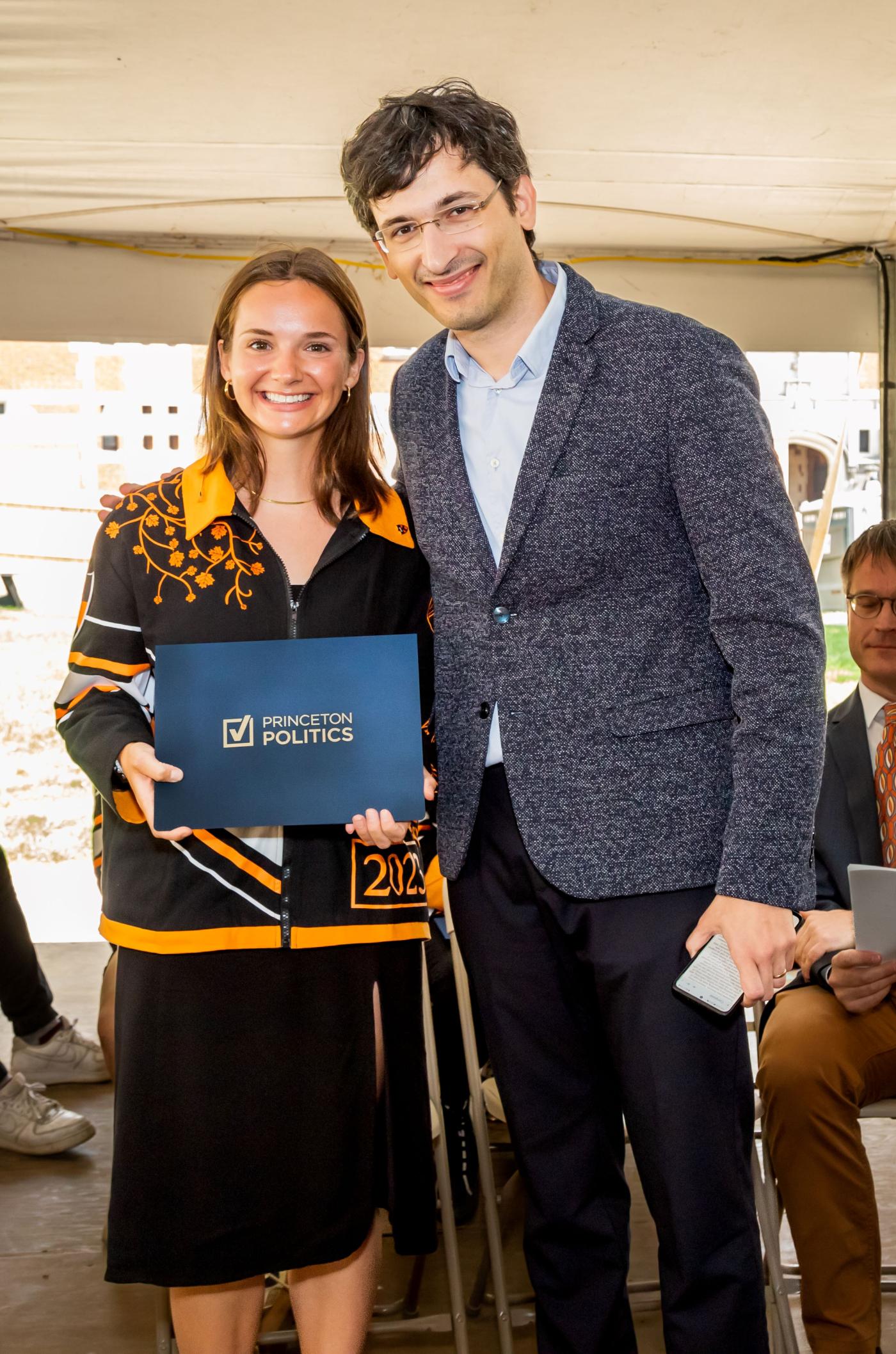

Political Economy (PE) is a cross-disciplinary field for students who wish to further their understandings of social phenomena and individual behavior by combining the perspectives of its two constituent disciplines. The PE track allows and encourages students to use analytical tools from game theory, microeconomics and statistics to study political behavior, and to incorporate a thorough analysis of politics and collective decision-making into economic analysis.
Prerequisites
To participate in this track, students must complete two Politics courses and ECO 100 and 101, and MAT 103 (or higher level) before the end of their sophomore year. All five of these courses should be taken on a graded basis (e.g., not p/d/f). (Under special circumstances, students can apply for exceptions or deferrals of these prerequisites. These requests will be considered by the PE adviser).
Track Requirements
It is important for each student to select a combination of Economics and Politics courses that form a coherent and meaningful program. Before signing up for the first semester of the junior year, the student should work out a tentative course outline for the two years; this outline must be approved by the PE adviser.
In addition to the PE prerequisites, a student in the PE track is required to complete the following courses, all of which will be counted as departmentals:
(1) Political Economy: either Political Economy (POL 349), Comparative Political Economy for Policy Making (SPI 329/POL 350)*, or Comparative Political Economy (POL 352)*;
*NOTE: Students may either take SPI 329/POL 350 or POL 352 - not both.
(2) Game Theory: Game Theory in Politics (POL 347/ECO 347);
(3) Quantitative Methods: Introduction to Quantitative Social Science (POL 345/SOC 305/SPI 211), Applied Quantitative Analysis (POL 346), Statistics and Data Analysis for Economics (ECO 202), Econometrics (ECO 302), or Econometrics: A Mathematical Approach (ECO 312);
(4) Microeconomics: One of the following Intermediate Microeconomics courses: Microeconomic Theory (ECO 300), Microeconomic Theory: A Mathematical Approach (ECO 310), Microeconomics for Public Policy (SPI 304 - previously listed as SPI 300 until Spring 2022);
(5) Macroeconomics/Topics: One of the following courses: Intermediate Macroeconomics (ECO 301, ECO 311), International Development (SPI 302/ECO 359), Public Economics (SPI 307/ECO 349), International Trade (SPI 309/ECO 352 - previously listed as SPI 301 until Spring 2024);
Together with six additional courses in the Politics Department (possibly including POL courses counted as prerequisites), this eleven course combination fulfills the requirements both for the PE track and for the major, and is used in calculating department honors.
PLEASE NOTE that if you're pursuing the Political Economy Track, you must use the designated upper-level economics courses as your two cognates; therefore, you cannot take additional courses as cognates.
Students in the PE track must also fulfill the distribution requirement of the Department, however, the quantitative methods course will satisfy the Politics Department's analytical requirement, while POL 347/ECO 347 can serve as a course in a third field.
Senior Thesis
While a student in the track must write a thesis on a topic related to the student's primary field, the thesis must also incorporate significant PE content. On or before the thesis draft deadline, the PE content of the thesis must be certified by the PE Adviser. The student should meet with the PE Adviser well in advance of this deadline to discuss the PE content of the thesis.
Questions regarding the Track in Political Economy should be directed to Germán Gieczewski.
Please note: The degree will read A.B. in Politics and unlike University minors, the departmental track will not appear on the transcript. Politics majors who successfully complete the track’s requirements will receive a departmental attestation on Class Day.

